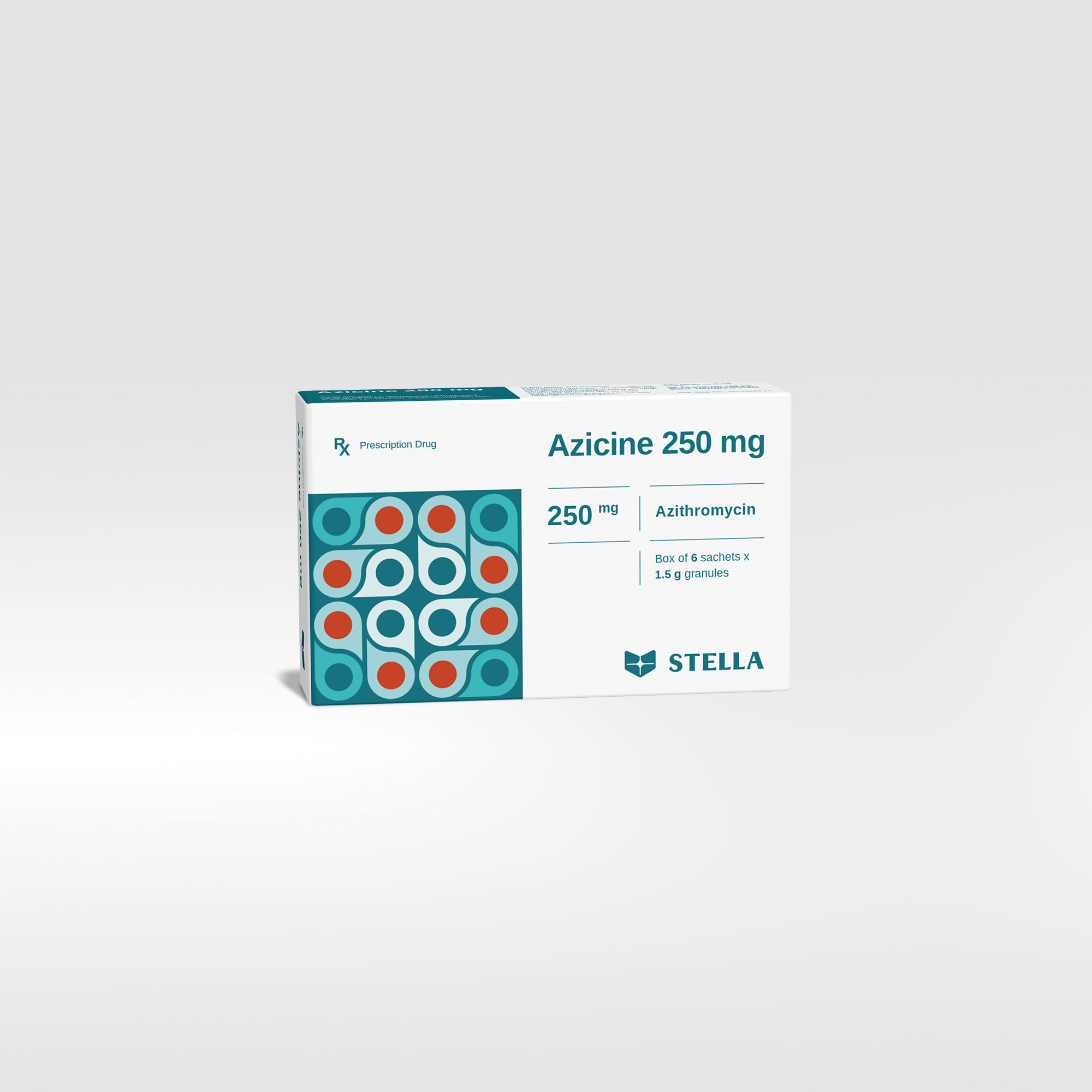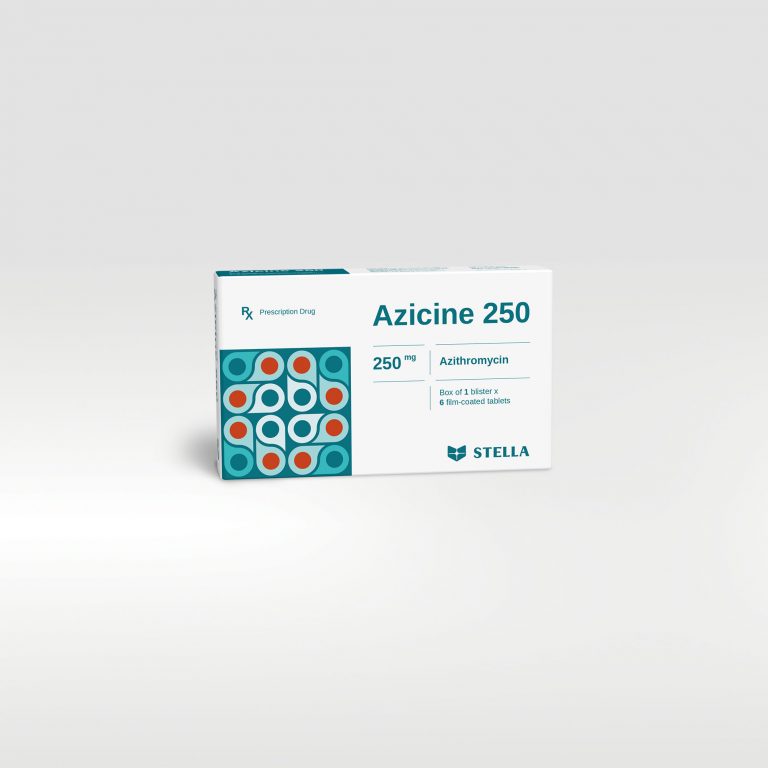Azicine 250 mg Rx
Azicine 250 mg contains azithromycin, a first macrolide antibiotic. It blocks protein synthesis by inhibiting protein synthesis of bacteria and by inhibiting the assembly of the 50S ribosomal subunit. Azicine 250 mg is indicated for infections caused by susceptible organisms.
| Pack size | Box of 6 sachets, sachet of 1.5 g |
| Shelf-life | 24 months |
| Composition | Azithromycin |
| Dosage forms and strengths | Granules: 250 mg |
Product code :









